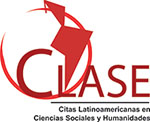Constructivist and socio-cognitive applications in second and foreign language teaching and learning
DOI:
https://doi.org/10.23857/dc.v7i2.1829Palabras clave:
Constructivism, Socio-cognitive theory, Zone of Proximal Development, Self-Regulation.Resumen
This article covers practical applications of two of the most outstanding learning theories that have contributed to foreign language teaching and learning. This paper deems Constructivism and Socio-cognitive theories as alternative approaches to traditional objectivist practices that have been deeply rooted in English as foreign language classrooms for decades. Vygotsky’s constructivist principles of scaffolding in the zone of proximal development (ZPD) and Bandura’s socio-cognitive notions of self-regulation are discussed as concepts teachers should examine when contemplating alternatives to enhance and broaden their teaching perspectives. A significant portion of this paper deals with educational applications and foreign language research from Constructivism and Socio-cognitive theories. Likewise, the several influences on foreign language learners' learning and performance are discussed regarding the ZPD and self-regulation. This analysis reckons that although the switch to constructivist and socio-cognitive practices in foreign language teaching may imply some teachers' challenges, the benefits exceed the possible difficulties they may encounter. The paper calls for more detailed research on applications of constructivism and socio-cognitive theories in the English as a foreign language classroom.
Citas
Bandura, A. (1991). Socio-cognitive Theory of Self-Regulation. Organizational Behavior and Human Decision Processes, 50, 248-287.
Bodrova, E., & Leong, D. (1998). Scaffolding Emergent Writing in the Zone of Proximal Development. International Journal of Early Reading and Writing, 3(2), 1-17.
Finkbeiner, C., Knierim, M., Smasal, M., & Ludwig, P. (2012). Self-regulated cooperative EFL reading tasks: Students’ strategy use and teachers’ support. Language Awareness, 21(1-2), 57-83.
Guerrero, M., & Villamil, O. (2000). Activating the ZPD: Mutual Scaffolding in L2 Peer Revision. The Modern Language Journal (84), 51-68.
Lam, R. (2015). Understanding EFL Students' Development of Self-Regulated Learning in a Process-Oriented Writing Course. TESOL Journal, 6(3), 527-553.
Lantolf, J., & Aljaafreh, A. (1995). Second Language Learning in the Zone of Proximal Development: A revolutionary experience. International Journal of Educational Research, 619-632.
Lightbown, P., & Spada, N. (2013). How Languages are Learned. Oxford: Oxford University Press.
Magno, C. (2009). Self-Regulation and Approaches to Learning in English Composition Writing. TESOL Journal, 1, 1-16.
Morshedian, M., Hemmati, F., & Sotoudehnama, E. (2017). Training EFL Learners in Self-Regulation of. Reading & Writing Quarterly, 33(3), 290-303.
Ohta, A. (1995). Applying Sociocultural Theory to an Analysis of Learner Discourse: Learner-Learner Collaborative. Issues in Applied Linguistics, 6(2), 93-121.
Schunk, D. (2012). Learning Theories: An Educational Perspective. Boston, MA: Pearson.
Schunk, D., & Zimmerman, B. (1998). Self-Regulated Learning: From Teaching to Self-Reflective Practice. New York: Guilford Press.
Schwieter, J., & Laurier, W. (2010). Developing Second Language Writing through Scaffolding in the ZPD: A Magazine Project for an Authentic Audience. Journal of Teaching & Learning, 7(10), 31-45.
Seker, M. (2016). The use of self-regulation strategies by foreign language learners and its role in language achievement. Language Teaching Research, 20(5), 600-618.
Vygotsky, L. (1997). Interaction between learning and development. In M. Gauvain, & M. Cole, Readings in the Development of Children (pp. 28-36). New York: W.H. Freeman and Company.
Vygotsky, L. (1978). Mind in Society: The development of higher psychological processes. (M. J.-S. Cole, S. Scribner, & E. Souberman, Eds.) Cambridge, MA.: Harvard University Press.
Publicado
Cómo citar
Número
Sección
Licencia
Authors retain copyright and guarantee the Journal the right to be the first publication of the work. These are covered by a Creative Commons (CC BY-NC-ND 4.0) license that allows others to share the work with an acknowledgment of the work authorship and the initial publication in this journal.






